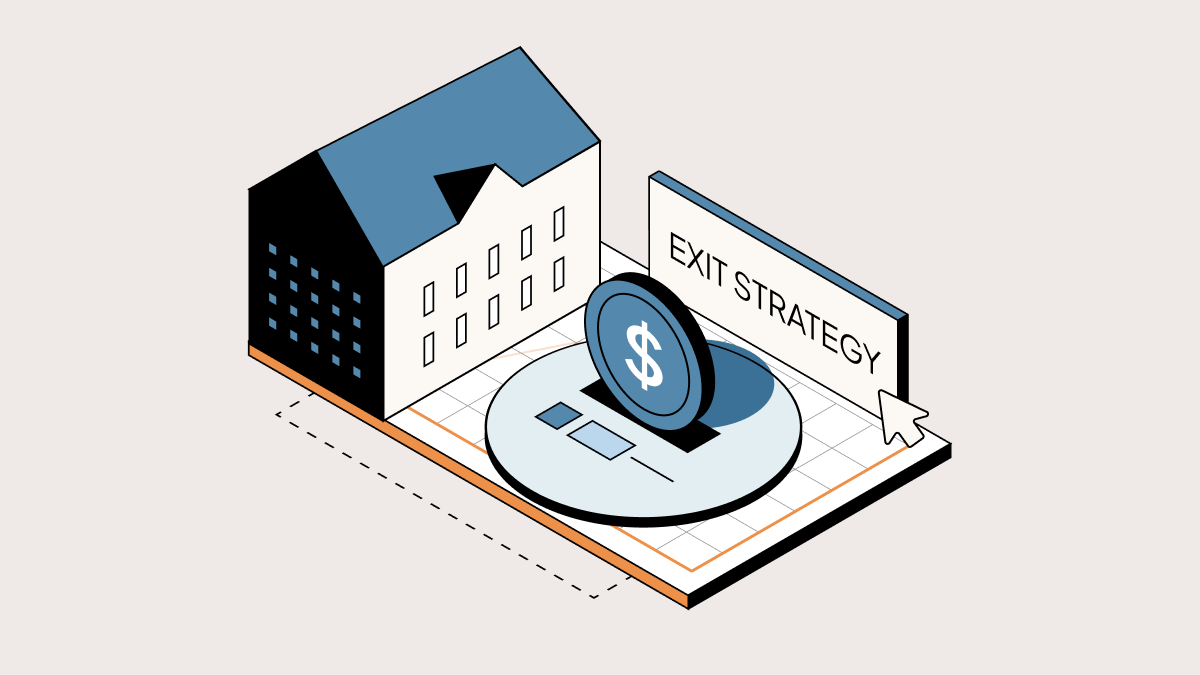What is a leveraged buyout?
A leveraged buyout (LBO) is a type of M&A transaction in which the buyer uses debt—also known as leverage—to finance a substantial portion of the transaction.
In many cases, the assets of the business being acquired (typically called the “target”) are used as collateral for the debt, and the acquired company carries the debt on its own balance sheet moving forward. Many private equity firms specialize in conducting LBOs.
An LBO is one possible exit strategy for startups that have previously raised venture capital funding.
How does a leveraged buyout work?
For the buyer, the purpose of an LBO is to acquire the target company, improve its finances and operations over the course of a few years, and then sell the target again to another buyer for a profit. Most of the time, the buyer in an LBO is a private equity firm or some other professional investor with expertise in both corporate finance and business operations.
For the target company’s leadership, the purpose of an LBO can vary. In some cases, management is looking for an experienced partner with financial resources to help them grow the business. In others, management is looking for an exit, and an LBO is a way to cash out.
Like most M&A deals, an LBO is a complex financial transaction that can take many weeks or months to negotiate and conduct due diligence. While the length of deal timelines differs, most LBOs involve several of the same steps:
Identifying a target company
PE firms and other strategic investors spend significant time and resources scouting their preferred markets for LBO targets. An LBO is typically a better fit for mature, profitable companies than for early-stage startups because the company often needs to generate enough cash flow to service its debts related to the transaction in addition to all its other business operations.
At a basic level, investors are looking for companies that they believe have potential to grow and increase their profitability in the coming years.
Negotiating a purchase price
One of the most important variables in an LBO for all parties is the value of the company. Potential buyers and sellers typically try to discover early in the deal process whether they are close enough on a potential price to make pursuing further negotiations worthwhile.
Acquisition financing
Once a deal is on the horizon, the buyer starts to establish how they will finance the acquisition. This typically involves some combination of cash—which PE firms raise from their limited partners—and debt—which they raise in the form of loans, either from banks or private credit lenders.
The use of debt financing allows PE firms to increase their buying power and acquire large companies with a relatively small outlay of cash. Using debt to finance an acquisition can also position firms to earn a higher return on their investment if they find a successful exit.
→ Learn more about how Carta helps with the M&A process
Operating and improving the company
Once a buyer takes control of a target company through an LBO, it usually implements some strategic changes aimed at streamlining operations, growing margins, and improving other financial metrics. These changes can take many forms, including changes in business model, restructuring, layoffs, technological improvements, and growing through further acquisitions. Many private equity firms have an established strategy for how they plan to turn around the companies they acquire.
→ Learn more about what happens to stock when your company is bought
Exit strategy
Since the purpose of an LBO for the buyer is to turn a profit, eventually, they have to achieve an exit themselves. This could take a few different forms, but the most common exit strategies are either to conduct an initial public offering (IPO) or sell the company on to another investor in a new buyout. This type of transaction, where one private equity firm sells one of its portfolio companies to another firm, is called a secondary buyout.
It’s common for PE firms to own companies for several years before exiting. Some exits occur after as little as one or two years, while others can take a decade or more.
→ Read our IPO readiness guide and download a free pre-IPO checklist
LBO vs. other types of acquisitions
There are two main types of M&A transactions that serve as exit paths for startups: LBOs and corporate mergers and acquisitions.
An LBO is a specific type of M&A transaction with a specific purpose: The buyer hopes to improve the company’s operations and then generate a profit by exiting the company in a few years.
This differs from corporate M&A, where one company acquires another. In most cases, corporate M&A is seen as a long-term transaction, with the idea of operating the newly acquired company as a permanent subsidiary or absorbing its operations. Some corporations do turn around and sell a business that they had previously acquired, but owning a company for a few years and then flipping it to another buyer is typically not the goal of corporate M&A.
Management buyouts, secondary buyouts, and hostile takeovers are all common varieties of LBOs.
Management buyout (MBO)
A management buyout is an LBO in which the company’s existing management team plays a key role in the acquisition group. Management may put up their own capital to acquire the business, or they may partner with a private equity firm or other outside investor.
Secondary buyout (SBO)
A secondary buyout is an LBO in which one investment firm buys a company from another investment firm that acquired the company through an LBO of its own. Some companies are subject to several consecutive SBOs, as different private equity firms find different ways they believe they can improve the company’s performance and continue to generate value.
Public-to-private buyout
A public-to-private buyout is an LBO in which an investment firm buys a publicly traded company and then delists the target from the stock market, converting it back into a private company. These LBOs of publicly traded companies are far less common than LBOs targeting private companies.
Hostile takeover
A hostile takeover is a type of acquisition in which an investment firm or company buys a target company from its shareholders without the cooperation of the target’s management and board of directors.
Hostile takeovers are a rarity among LBOs. Instead, the vast majority of LBOs are friendly takeovers, where the buyer negotiates terms and comes to an agreement alongside management, the board, and other shareholders. Nearly all hostile takeovers target public companies, rather than private companies, because acquiring publicly traded shares without the company’s approval is much easier than doing so with privately traded shares.




